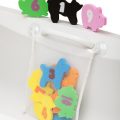What questions do preschool children have?
The baby's questions come in the most incredible waysmoments when it is difficult to concentrate and give a decent answer without getting into lengthy explanations. Not always the toddler asks questions to get an answer to them. Before answering a child's questions, you need toget to the heart of the matterPhoto: Getty Sometimes a toddler comes to his mother who is cleaning the apartment out of boredom. A series of questions immediately begins, each of the subsequent ones "clinging" to the previous one: "What are you doing?" » — "Washing the floors" — "Why are you washing the floors?" » — "To keep it clean" — "Why do you want it clean?" etc. Eventually, the mother starts yelling and chases the toddler away. The toddler saw perfectly well what his mother was doing and most likely understands why it was necessary. But he got bored and came to talk. If there is no end to the questions and anger is boiling, try to defuse the situation. Give a paradoxical answer to the child's question: "I'm reading a poem." Most likely, the child will be outraged by such an obvious "deception" and will shout: "No, you're washing the floors." After which you can laugh at the joke.
Before answering a child's questions, you need toget to the heart of the matterPhoto: Getty Sometimes a toddler comes to his mother who is cleaning the apartment out of boredom. A series of questions immediately begins, each of the subsequent ones "clinging" to the previous one: "What are you doing?" » — "Washing the floors" — "Why are you washing the floors?" » — "To keep it clean" — "Why do you want it clean?" etc. Eventually, the mother starts yelling and chases the toddler away. The toddler saw perfectly well what his mother was doing and most likely understands why it was necessary. But he got bored and came to talk. If there is no end to the questions and anger is boiling, try to defuse the situation. Give a paradoxical answer to the child's question: "I'm reading a poem." Most likely, the child will be outraged by such an obvious "deception" and will shout: "No, you're washing the floors." After which you can laugh at the joke.
How to answer the difficult question
Sometimes the difficulty with the answer arises becausethat you do not understand the essence of the question. The child is not yet able to formulate the question in the form that interests him. He can ask where a fairy-tale character lives, for example, the Firebird. When mom has difficulty explaining the location of the faraway kingdom, the child will stop her and say: "It's all wrong, she lives in a nest." To understand what the child wants to know, you need to be more attentive to him. Buy children's encyclopedias that are appropriate for their age. They contain answers to some pressing issues. However, encyclopedias are also an adult's point of view. To understand your child, you need to go back to childhood and look at the world with different eyes. There is an almost win-win option - ask a counter question. "Dad, what kind of tree is this?" — "What do you think?" — «This is a forest tree. It is big».— «You see, what a good boy you are, you thought about it and figured it out yourself». Counter questions perform several functions:
- allow you to "decipher" the question;
- motivate the child to think;
- give the baby a taste of victory.
By asking questions like these, parents will learn better.understand the baby and instill in him, in addition to curiosity, the ability to reason. Often, the baby's questions are connected with the desire to communicate. By answering a question with a question, parents stimulate the cognitive abilities of the toddler.









